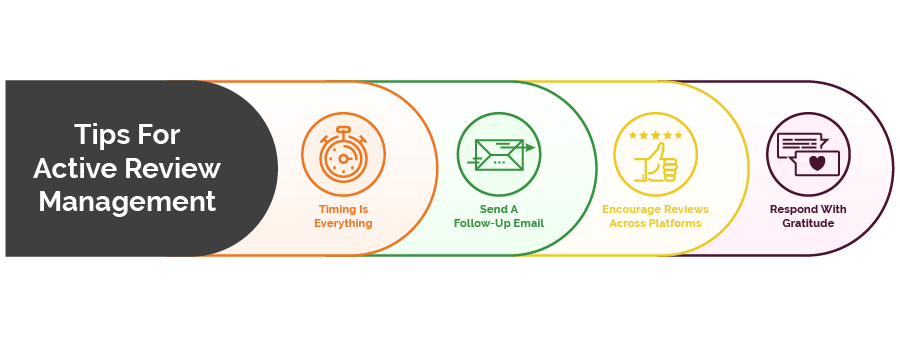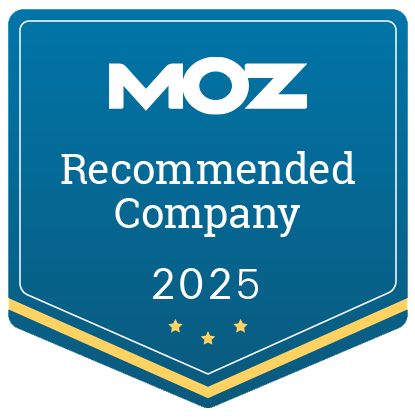We've been told since childhood not to be bothered by what others think of us. How many times have you heard, “Don’t worry about what other people think,” or, “Just be yourself, don’t worry about what anyone says.” Unfortunately, when it comes to business, judgment and opinions matter, and a bad reputation can be detrimental.
Word travels fast, especially now that social media is a buzzing environment with over 4.6 billion users. Prospective customers pay attention to what they read online about a brand. This is especially true if it's a business they’re interested in or considering purchasing with. All it takes is a handful or even one bad review to deter that customer from conversion.
Often, your reputation will precede you, particularly if you're a company that's trying to make an impact on future customers. Bad press can be a detriment to your brand's reputation but ignoring this negative feedback just adds fuel to an already unruly fire. Now that customers are regularly reading reviews and deciding to purchase based on the way you handle negative feedback, it's become increasingly important to protect your reputation at all costs.
But what does it take to build a great reputation for your brand? How do you improve a reputation that isn’t up to par? With these several tips, you’ll have everything it takes to curb bad press and create a stellar brand reputation.
What is Brand Reputation Management?
A brand's reputation is one of its most valuable assets, especially online, where information spreads like wildfire. Understanding what brand reputation means and how to manage it effectively is crucial for building trust, building customer loyalty, and maintaining a positive public image.
Brand reputation refers to how a brand is perceived by its customers, stakeholders, and the general public. It encompasses opinions, perceptions, and beliefs about the brand, which can be influenced by factors like customer service, product quality, transparency, and marketing efforts. Managing a brand’s reputation involves maintaining and improving how the brand is viewed across all these areas.
Key Elements of Brand Reputation
Several key factors contribute to brand reputation, including:
- Customer Service: Exceptional customer service helps build positive relationships with customers.
- Product Quality: High-quality products develop trust and brand loyalty.
- Transparency: Being transparent and honest with customers can significantly strengthen brand trust.
- Consistency: Consistency in communication, messaging, and service offerings ensures that customers know what to expect from the brand.
Traditional vs. Online Reputation Management
Traditional reputation management involved monitoring press releases, public appearances, and word-of-mouth. Today, online platforms have drastically changed how reputations are managed. Brands must now deal with real-time feedback from social media, online reviews, and digital forums.
Why Is It Important for Brands to Manage Their Online Reputation?
Impact on Consumer Trust and Loyalty
A positive brand reputation builds trust with consumers, who are more likely to remain loyal when they feel connected to a trustworthy brand. Loyal customers also become brand advocates, recommending your products or services to others.
Building brand credibility can also help your business during difficult times, as trust acts as a buffer, ensuring your loyal customers stick around even when there are market fluctuations or minor setbacks. Open, honest communication, transparency, and consistently providing your customers with value can transform one-time buyers into lifelong supporters who believe in your mission and share it with others.
Influence on Purchase Decisions
User-generated content (UGC) is one of the most influential factors in customer behavior. Positive reviews, customer photos, testimonials, and other trust signals give potential customers a glimpse into a real experience which helps build credibility and trust in your brand. Maintaining an active online brand presence means engaging with your customers –– encouraging reviews, building a community on social platforms, and taking the time to hear their feedback.
Consumers often rely on online reviews, social media posts, and other user-generated content when making purchase decisions. A good online reputation can tip the scale in favor of your brand, while negative reviews may lead potential customers to competitors.
Risk of Negative Publicity
Negative reviews, social media backlash, and poor press coverage can take a serious toll on a brand’s reputation. Addressing these issues quickly and professionally is essential to protect your brand reputation and maintain trust with your audience.
Genuine responses can prevent negative feedback from escalating, turning a potential crisis into a unique learning opportunity for company growth. When your brand owns up to mistakes and demonstrates a willingness to improve, it can strengthen your reputation! Customers appreciate transparency and accountability. Responding with empathy and taking ownership can help rebuild the trust your brand may have lost.
Credibility and Trust
Brands that actively manage their reputation build credibility in their industry and marketplace, which boosts trust with potential and existing customers.
Proactive reputation management ensures that a brand maintains a positive public image and positions them as leaders in their field. By showing up and engaging with customer feedback, brands can demonstrate that they value their consumer’s experience. This level of engagement forms a strong foundation for reliability and authenticity that speaks to new and loyal customers.
SEO and Visibility Benefits
Did you know a positive online reputation can improve your brand’s search engine rankings, making it easier for customers to find you? Search engines value quality, relevant content, and positive reviews, which can improve your site’s visibility and organic traffic.
When your customers share positive experiences with social media or reviews, it sends strong trust signals to search engines like Google. High ratings and active engagement give your brand a significant edge over the competition and boost your online reputation and reach.
How to Build and Improve Your Brand's Online Reputation
Perform an Audit of Your Online Presence and Reputation
Start by assessing how your brand is currently perceived online. This includes monitoring social media channels, reading online reviews, and performing a thorough search to see what customers are saying.
Once you’ve gotten a better understanding of your brand’s online perception, you can identify areas for improvement and opportunities to build stronger relationships with audience members. Try engaging directly with your customers whether that’s thanking them for positive feedback or resolving issues. Staying proactive is how to improve brand reputation organically!
Prioritize Customer Service
Excellent customer service should be at the forefront of any brand reputation strategy. Happy customers are more likely to leave positive reviews and recommend your brand to others.
When customers feel heard and valued, even a difficult situation can end on a happy note. A prompt, personalized message can turn an unhappy customer into a loyal advocate. Prioritize your customer satisfaction and see how you can create lasting relationships that encourage word-of-mouth recommendations.
Write High-Quality, People-First Content
Producing valuable, informative, and engaging content can strengthen your brand’s reputation as a thought leader in your industry. Content that addresses customer pain points and offers solutions adds credibility.
By consistently delivering a high-quality content strategy for your brand, you learn how to build a brand reputation that your audience can trust. When customers see how your brand understands their challenges and provides actionable insights, they’re much more likely to view you as a reliable source of information they care about.
Embrace Transparency and Authenticity
Customers appreciate brands that are honest and authentic. Being transparent about business practices, including handling mistakes, shows that the brand is accountable and trustworthy.
Being genuine helps to build a deeper connection with your audience. When customers feel like a brand values their trust and isn’t afraid to share successes and setbacks, it creates a sense of loyalty that goes far beyond just product satisfaction.
Leverage Social Media and Influencer Partnerships
Social media platforms are vital tools for reputation management. Brands can connect directly with their audience, share positive news, and partner with influencers to expand their reach.
Using social media also allows brands to address negative feedback promptly, showing their customers how they value their voices and concerns. This real-time interaction can turn potential problems into opportunities to grow relationships and show a strong commitment to customer care.
Encourage Community Engagement
Engage with your community by participating in conversations, addressing questions, and responding to feedback. Being active and present shows customers that your brand cares about their needs and concerns.
This level of engagement helps to humanize your brand and make it more relatable and approachable (nobody enjoys a standoffish brand!). When customers see that their input and feedback are acknowledged and valued, it evokes a sense of community and mutual respect.
Monitor Brand Mentions
Use tools to track what is being said about your brand across the web. This helps you stay ahead of potential issues and capitalize on positive feedback.
Monitoring brand mentions also gives you valuable insights into customer sentiment and emerging trends. Understanding and learning about how people see your brand can allow you to make informed decisions to extend your offerings and tailor your messaging more effectively.
Actively Ask for and Respond to Reviews
Encouraging satisfied customers to leave positive reviews and responding to feedback—whether good or bad—shows how your brand values customer opinions. Engaging in this way strengthens relationships with existing customers and positively influences potential customers evaluating your brand.
Here are a few practical examples of improving your brand reputation through active review management:
- Timing is Everything: Ask for reviews at the right moment! If a customer just completed a successful project or made a purchase they’re excited about, request a review while their satisfaction is fresh.
- Send a Follow-Up Email: After a purchase or service, send a personalized follow-up email inviting customers to share their experience. Be sure to include a direct link to your preferred platform, making it as simple as possible!
- Encourage Reviews Across Platforms: Invite customers to leave feedback on popular sites like Google and Facebook as well as any industry-specific platforms relevant to your business. Positive feedback across multiple sites boosts your brand’s credibility while strengthening its SEO presence.
- Respond with Gratitude: When customers leave positive reviews, take the time to thank them personally (and genuinely). Mention specific details from their review to show you care about their experience.
Show Value in Your Products
Communicate the value that your products or services provide. A strong value proposition can improve your brand’s image and strengthen its market position.
Sharing your product’s unique value proposition (UVP) helps differentiate your brand from others and gives your audience a compelling reason to buy your products. When people understand the benefits you offer over the competition, it gives them confidence in your brand and product services.
Upgrade Your Technologies
Keeping up with the latest technology not only improves your product offerings but also amplifies the customer experience, which can contribute to a better overall reputation.
Adopting new technologies also signals to customers that your brand is forward-thinking while staying committed to relevancy. This proactive approach helps build a reputation for innovation and attracts customers who value continuous improvement and out-of-the-box solutions.
Monitor and Adapt to Market Trends and Current Events
Brands need to stay agile and adapt to changing market trends and events. A proactive response to industry changes or global issues can reinforce brand trust and credibility.
Being flexible shows that your brand is in tune with its environment and willing to change to meet the needs of your customers! Quick and thoughtful responses to changes demonstrate leadership and accountability, making your brand more dependable.
Leverage Public Relations
Public relations strategies can help brands share positive stories and manage crises effectively. A solid PR plan can emphasize brand reputation and mitigate damage from negative publicity.
Effective PR strategies help brands shape their narrative and build a consistent public image. You can continue to reinforce your brand’s credibility by maintaining transparency during difficult times and taking time to think through any public messages.
Bonus Tip: Partner with ZGM, the Brand Reputation Experts
Want to make sure your brand shines online? At Zero Gravity Marketing, we’re more than just experts – we’re your biggest supporters, dedicated to building and protecting your brand’s reputation. Our passion is helping brands like yours thrive in a crowded digital space, and we’re committed to delivering results that you can take pride in.
When you partner with us, you’re choosing a team that understands the ins and outs of reputation management. With our powerful monitoring tools, strategically crafted content, and proactive, customized strategies, we ensure your brand not only looks its best but also earns the trust and loyalty of your audience. From search engines to social media, we’ve got every channel covered, so you’re never out of sight (or mind)!
Ready to take control of your brand's reputation? Start implementing these strategies today or reach out to Zero Gravity Marketing for expert guidance on improving your online reputation.
FAQ
About the Author













